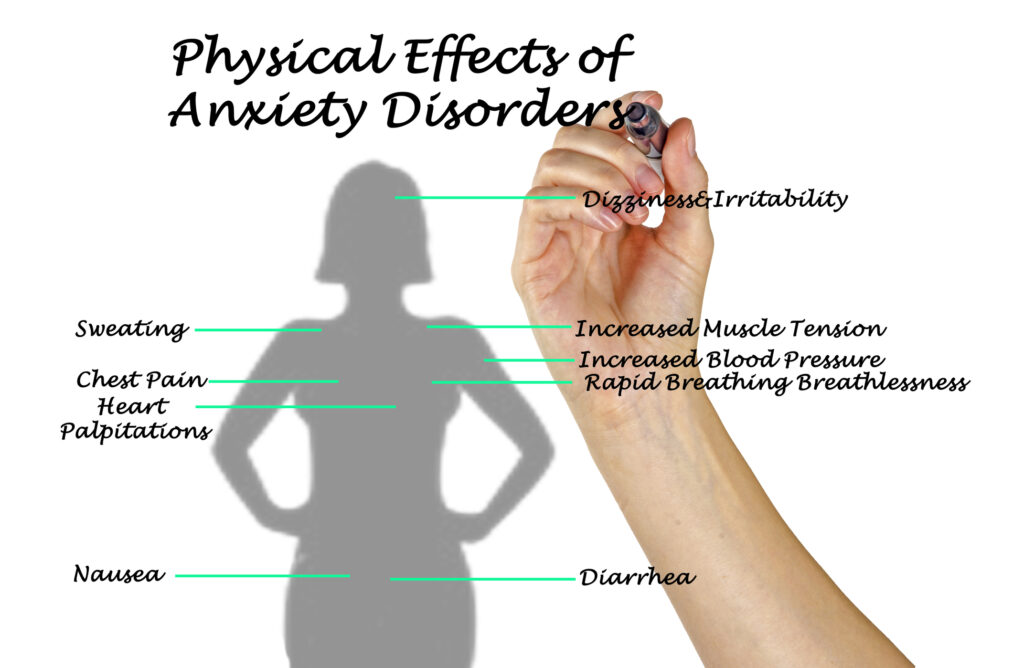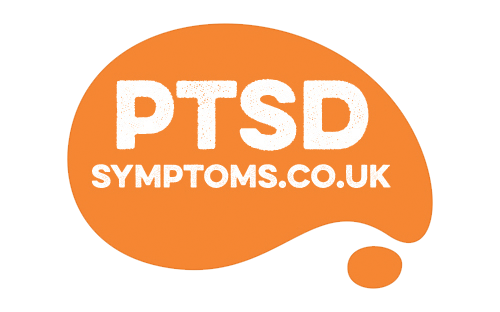
Anxiety is a complex human emotion that most of us experience at some point in our lives. It can manifest as a nervous feeling before giving a presentation or meeting someone new, but for others, it may be an overwhelming sense of fear and worry that impacts their daily activities. Whether we are aware of it or not, anxiety has deep roots in the workings of our brain and can have significant effects on our mental health. In this blog post, we will dive into the science behind anxiety and explore its impact on our brains and overall well-being. We will also discuss how understanding this emotion better can help us cope with it and take control of our mental health. So, let’s delve into the complexities of anxiety together!
Introduction to anxiety and its prevalence in society
Anxiety is an immensely prevalent issue in today’s society, affecting millions of people worldwide. Interestingly, the science of anxiety and how it affects the brain is a topic that has garnered significant attention in recent years. Some studies have suggested that anxiety can alter the body’s chemistry and even impact its physical structure, particularly the brain. Moreover, the effects of anxiety aren’t just psychological but can manifest physically, leading to physical symptoms such as chest tightness, sweating, and shortness of breath. Understanding the science of anxiety and its prevalence in society could go a long way in helping individuals cope and manage this debilitating condition.
a. Definition of anxiety
Anxiety is a term that is commonly used to describe feelings of worry, fear, or unease. It is a normal and healthy response to stress, but when it becomes excessive or persistent, it can interfere with daily life and lead to a range of physical and emotional symptoms. Anxiety can be triggered by a wide range of situations and experiences, such as social situations, work or school, relationships, health concerns, and major life changes. Symptoms of anxiety may include a rapid heartbeat, sweating, shaking, trouble sleeping or concentrating, feeling restless or on edge, and avoiding certain situations or activities. While anxiety can be overwhelming, it is treatable with various methods, including therapy, medication, and lifestyle changes.
b. Statistics on how many people are affected by anxiety disorders
Anxiety disorders affect millions of people worldwide and can have a profound impact on their quality of life. According to recent statistics, approximately one in four individuals will experience an anxiety disorder at some point in their lives. This means that millions of people are currently living with the debilitating symptoms of anxiety, which can include persistent worry, panic attacks, and avoidance behaviour. It’s important to note that anxiety disorders are highly treatable with a variety of interventions, including therapy, medication, and lifestyle changes. However, many individuals may struggle to access the appropriate care and support they need, which highlights the importance of continued research and advocacy in this field.
The brain chemistry behind anxiety
The brain is a complex organ that controls our thoughts, emotions and behaviours. Anxiety is a common mental health condition that can affect anyone, and its symptoms are often debilitating. Recent research has found that anxiety disorders may be related to changes in brain chemistry. Specifically, scientists have identified certain chemicals in the brain, such as serotonin, dopamine and norepinephrine, that play a key role in regulating anxiety. Understanding the brain chemistry behind anxiety can help doctors and researchers develop more effective treatments for those who suffer from this condition. By improving our understanding of the brain, we may be able to find new ways to manage and alleviate anxiety, improving the quality of life for millions of people worldwide.
a. Neurotransmitters involved in anxiety (serotonin, GABA, dopamine)
Anxiety is a common mental health condition that affects millions of people worldwide. It is believed to be caused by an imbalance of neurotransmitters in the brain, including serotonin, GABA, and dopamine. Serotonin is known as the “happy” neurotransmitter and is essential in regulating mood, appetite, and sleep. GABA (gamma-aminobutyric acid) is an inhibitory neurotransmitter that helps reduce anxiety by slowing brain activity. Dopamine is a neurotransmitter associated with pleasure and reward, and low levels of it have been linked to anxiety and depression. Understanding the role of these neurotransmitters in anxiety can help researchers develop targeted therapies that address the underlying causes of this debilitating condition.
b. How imbalances in these neurotransmitters can contribute to anxiety
Anxiety is a common condition that affects millions of people worldwide, and it’s no secret that it can be caused by a variety of factors. One of the significant contributors to anxiety is imbalances in neurotransmitters, which are chemicals that transmit signals between nerve cells in the brain. For instance, imbalanced levels of neurotransmitters like serotonin and dopamine can result in anxiety and even depression. A deficiency in these neurotransmitters can trigger the brain’s fear and stress response, leading to anxious thoughts and physical symptoms. Therefore, it’s vital to maintain the right balance of neurotransmitters in the body to keep anxiety at bay. Understanding the relationship between imbalanced neurotransmitters and anxiety is a crucial step in treating this debilitating condition.
The physical effects of anxiety on the body

Anxiety can manifest in both physical and emotional ways, and the physical effects can be just as debilitating as the psychological ones. When we experience anxiety, our bodies activate the ‘fight or flight’ response, which can trigger a range of symptoms, such as increased heart rate, rapid breathing, trembling or shaking, and sweating. Over time, this chronic activation of the stress response can lead to more serious physical health problems, such as high blood pressure, heart disease, and digestive issues. It’s important to recognise these physical symptoms as a sign of anxiety and seek treatment, as managing anxiety can not only improve your mental health, but your physical health too.
a. Hormonal changes (increased cortisol levels)
Hormonal changes can be a challenging aspect of life to deal with, especially when it comes to increased cortisol levels. Cortisol is a hormone that is released in response to stress, and when elevated levels persist for extended periods, it can take a toll on your mental and physical health. Raised cortisol levels can affect your mood by causing anxiety, depression, and irritability, while also contributing to high blood pressure, weight gain, and even diabetes. On the bright side, there are ways to combat the effects of cortisol, such as getting enough rest, incorporating regular exercise into your routine, and incorporating stress-reducing activities, like meditation and yoga. By paying attention to your cortisol levels and taking the steps to manage them, you can help support your overall wellbeing.
b. Impact on heart rate and blood pressure
The impact of heart rate and blood pressure on the body is significant and can potentially indicate serious health issues. Changes in heart rate and blood pressure can be caused by a variety of factors, including stress and illness. These changes can signify a heightened risk for cardiovascular disease and other medical conditions. It’s important to regularly check your heart rate and blood pressure, especially if you experience symptoms such as dizziness, chest pain, or shortness of breath. Seeking medical attention can help identify any underlying health issues and provide treatment to help manage these symptoms. Ultimately, taking care of your heart health is vital for living a healthy and happy life.
The link between anxiety and mental health
Anxiety is a common mental health issue that can significantly impact a person’s overall well-being. This condition affects millions of people worldwide and can result in feelings of restlessness, nervousness, and fear. Fortunately, several treatment options exist, including therapy, meditation, and medication. A relatively new treatment option gaining popularity is Full Spectrum CBD Vape Cartridge. Cannabidiol, or CBD, is a non-psychoactive compound found in cannabis plants, and it is believed to help reduce anxiety and improve overall mood. While more research is needed to understand the full effects of CBD on mental health, many people who have used Full Spectrum CBD Vape Cartridge report positive results in reducing anxiety levels. This treatment option is worth considering for anyone looking for a natural and potentially more effective way to manage their anxiety and improve their mental health.
a. Common mental health disorders associated with anxiety (depression, OCD, PTSD)
Anxiety can lead to a slew of mental health disorders that impact our daily lives. Depression, for instance, is often associated with feelings of sadness that seem to linger, and can sometimes escalate to the point of suicidal thoughts. Obsessive-Compulsive Disorder (OCD), on the other hand, is characterised by an overwhelming urge to repeat the same actions or thoughts that can take a stranglehold on everyday life. Post-Traumatic Stress Disorder (PTSD), commonly experienced by those who have gone through a traumatic event, can lead to anxiety, depression, and an ongoing feeling of fear or unease. All of these disorders can greatly impair someone’s ability to manage their thoughts, feelings, and behaviour, underscoring the importance of early intervention and seeking help.
b. Effects of chronic anxiety on overall mental well-being
Chronic anxiety is a serious mental health condition that can have a profound impact on a person’s overall well-being. When anxiety persists over a long period of time, it can lead to emotional exhaustion, social isolation, and physical health problems such as headaches and stomach issues. In addition, chronic anxiety can interfere with a person’s ability to concentrate and focus, leading to poor performance at work or school. Over time, this can erode a person’s self-confidence and result in a sense of helplessness or hopelessness. To prevent chronic anxiety from taking a toll on your mental well-being, it’s important to seek professional help and learn effective coping strategies to manage your symptoms. With the right treatment and support, it is possible to overcome chronic anxiety and regain control of your mental health.
Coping mechanisms for managing anxiety
Anxiety is a common experience that many people face at one point in their lives. Coping mechanisms for managing anxiety are essential to living a healthy and balanced life. Learning to manage anxiety in healthy ways can help us feel empowered despite the challenges we may experience. Activities such as mindfulness, exercise, and journaling have been proven to be effective in reducing anxiety levels. Some people turn to medication or therapy for more support. Whatever method you choose, it is important to know that there is no one size fits all approach to coping with anxiety. What works for one person may not work for another. It’s important to experiment with different coping mechanisms to find what works best for you. With self-care and patience, you can learn to manage anxiety and move towards a more calm and peaceful life.
a. Therapy options (CBT, exposure therapy)
If you’re struggling with anxiety, depression, PTSD, or other mental health issues, therapy can be a crucial tool that can help you cope and find relief. Two popular therapy options are cognitive behavioral therapy (CBT) and exposure therapy. CBT is a type of talk therapy that helps you identify negative thought patterns and replace them with more positive ones. Exposure therapy is designed to help you face your fears and anxieties by gradually exposing you to them in a safe and controlled environment. Both of these therapies have been shown to be effective in treating a range of mental health conditions, so it’s important to speak with a mental health professional to determine which option is best for you. Remember, therapy is a personal and unique experience, so it’s important to find the right approach that suits your individual needs.
b. Self-care techniques (exercise, mindfulness, breathing exercises)
Self-care techniques such as exercise, mindfulness, and breathing exercises have never been more important than in today’s fast-paced and demanding world. With constant stressors and distractions, it’s important to take some time each day to focus on yourself and your well-being. Exercise not only helps with physical health but also releases endorphins that improve mood and reduce stress. Mindfulness and breathing exercises have also been found to reduce stress and anxiety while promoting a sense of calm and relaxation. Incorporating these self-care techniques into your daily routine can greatly improve your overall health and happiness. So take a few moments each day to prioritise yourself and practice these beneficial techniques.
Resources for those struggling with anxiety
Dealing with anxiety can be an overwhelming experience. Whether it’s related to a specific event or a constant battle, it’s important to find the right resources to help you manage your symptoms. There are a multitude of resources available for those suffering with anxiety, including therapy, support groups, apps and online forums. Seeking professional help can help you to identify triggers and develop coping mechanisms, while support groups provide a safe space to connect with others who are experiencing similar feelings. Technology has also played an important role in providing access to resources, with apps providing everything from breathing exercises to guided meditation to help calm your mind. Remember, there is no shame in seeking help and with the right resources, it is possible to overcome anxiety and lead a fulfilling life.
a. Support groups and hotlines
Sometimes life can be overwhelming and it can be difficult to handle everything on your own. That’s where support groups and hotlines come in. These resources provide a safe space for individuals to speak openly about their struggles and receive support from others who may have gone through similar experiences. Whether it’s dealing with grief, mental health issues, or addiction, support groups and hotlines offer a sense of community and guidance. It’s important to know that you don’t have to go through tough times alone and there are people and resources available to help.
b. Online resources and apps for managing anxiety
In today’s fast-paced world, many individuals struggle with anxiety, making it difficult to relax and enjoy life. Fortunately, technology has provided us with a range of tools to help us keep our anxiety under control. With the help of online resources and apps, anyone can master the art of managing anxiety. You can access a variety of resources that help you learn about anxiety, its triggers, and ways to manage it effectively. Some of these online resources even offer guided meditation, breathing exercises, and relaxation techniques to help reduce your anxiety levels. By incorporating them into your daily routine, you’ll be amazed at how much better you’ll feel. There’s no need to suffer in silence; help is within your reach!
7. Conclusion and encouragement to seek help if needed
As you reach the conclusion of this article, I want you to know that seeking help is a brave and important step in taking care of yourself. Whether it’s reaching out to a friend, family member, or a professional, it’s important to know that you are not alone in whatever challenges you may be facing. Remember, seeking help is a sign of strength, not weakness. Don’t let fear or stigma prevent you from reaching out for the support you deserve. Take care of yourself, and know that there is always hope for a brighter future.
